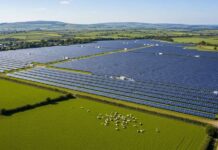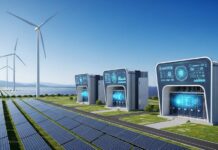The world has to ensure diverse supply chains and, at the same time, implement a framework in order to track the progress made with regards to tripling global renewable capacity by 2030, said EU’s Energy Commissioner Kadri Simson in Abu Dhabi on April 17, 2024.
The International Renewable Energy Agency- IRENA goes on to bring together the nations of the world in Abu Dhabi for a yearly two-day convention of deal-making, technical exchanges, and planning.
The EU happened to have two key messages for representatives in attendance, which were conveyed by Simson- the global COP28 pledge so as to triple renewables to 11,000 GW of capacity by 2030 has to have a more rigorous governance framework, and the dependence upon a single supplier, China, would go on to be very dangerous.
In 2023, global renewables installations dipped quite significantly short of the yearly target of 1,043 GW, reaching only 473 GW, remarked IRENA.
As per Simson, they propose that there has to be a monitoring framework that enables them to follow what is happening. The idea is most likely to be formally tabled at COP29 in Baku, and Simson added that this framework could go on to potentially sit with IRENA as well as the IEA- International Energy Agency.
According to the information that has been provided by COP28 hosts, the United Arab Emirates, around 133 countries have now gone on to commit to double energy efficiency gains and, at the same time, triple renewables until 2030. However, neither China nor India have gone on to sign up for the pledge.
The commissioner says that if they roll out new wind installations, both onshore and offshore, and even hundreds of gigawatts of solar, then it should also go on to create new jobs throughout the globe.
As of now, most jobs in the upstream solar supply chain happen to be located in China, and the country is indeed gaining market share in the wind sector.
They should not create a very dangerous dependency on one single supplier, Simson stressed, adding that the EU is indeed ready to engage with its international partners so that, all throughout the globe, alternative production sites come up that allow them to actually deliver this green shift.
EU officials in her entourage happened to be at pains to stress that this should not be comprehended as a call to the global south to spurn China, but instead that a de-risking approach fostering a more varied renewables industry is going to be in everyone’s interest.
Says Francesco La Camera, IRENA’s director-general, that everyone should do their best so as to make sure that there is decentralization when it comes to the supply side.
Given that over 600 million Africans go on to remain without stable access to energy, getting any kind of energy, no matter what or even from where, happens to remain a priority,” as per one of the officials from Africa.
As far as China is concerned, they are building roads and dams, whereas the EU happens to be presenting plans as well as strategies for the last 30 years.
African nations had two priorities. Technological transfers and also hard cash should come first, followed by moving from the energy extraction approach to generating local value.
































